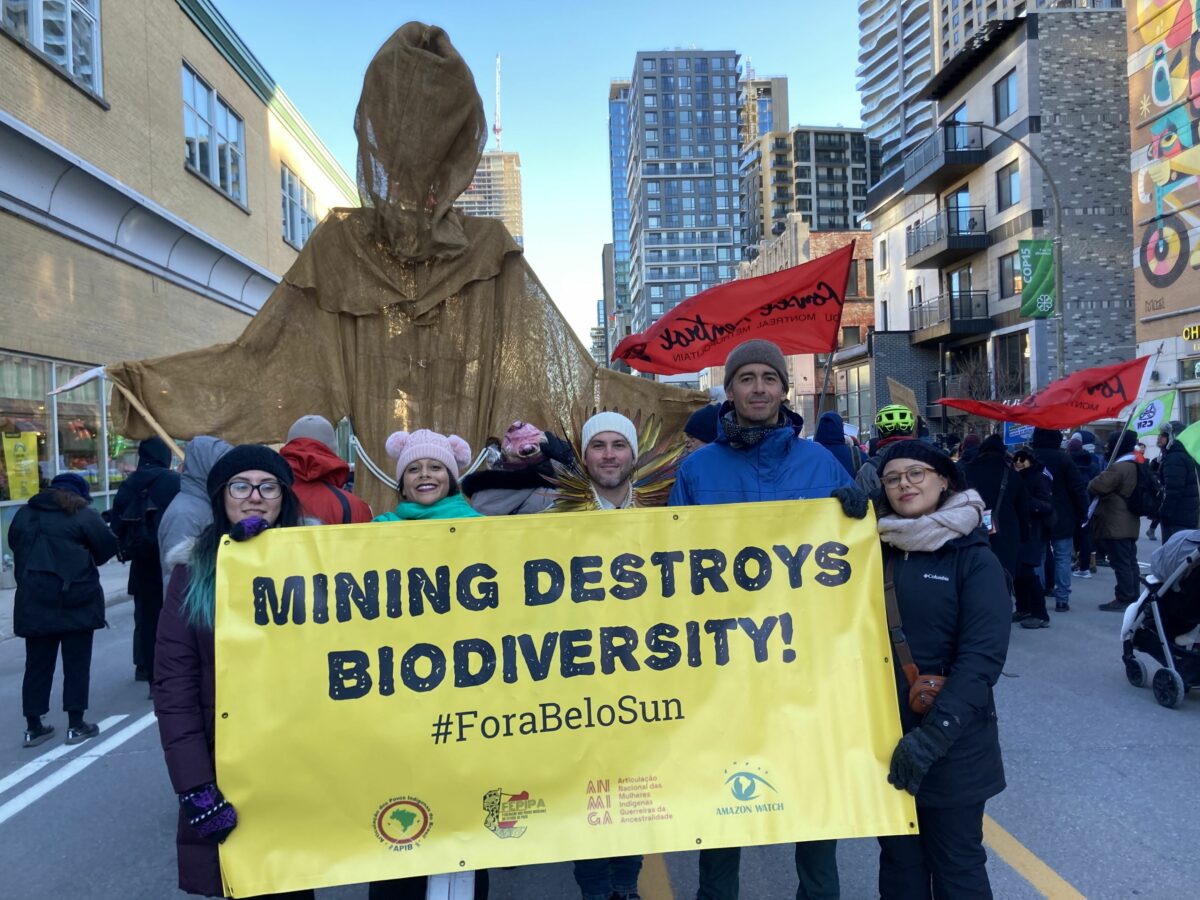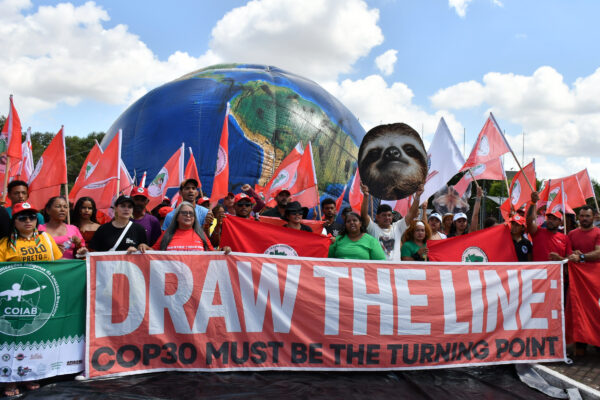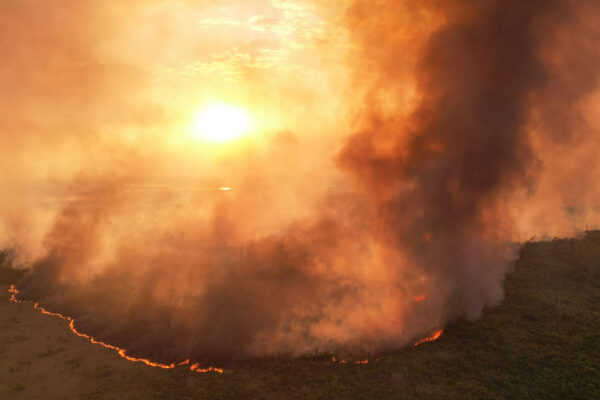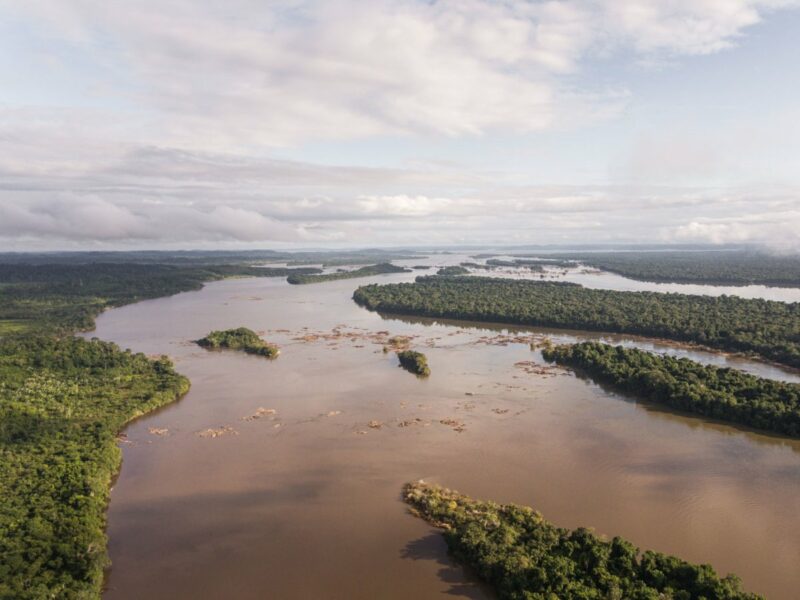In Brazil’s Para region, more than 800 Indigenous families could be forced to relocate as a Canadian mining company prepares to build a massive open-pit gold mine, activists warn.
The project would cover more than 2,400 hectares (5,930 acres) in one of the most gold-rich areas of the Amazon. The region is home to the Juruna, Arara, Xipaya and Xikrin peoples, along with many other riverine communities that cultivate small-scale farms and fisheries on the banks of the Volta Grande stretch of the Xingu River.
“The guaranteed right to our territory is at risk,” Lorena Curuaia, a leader of the Curuaia Indigenous people, told Al Jazeera. “We could lose territories that we have lived in for thousands of years.”
The Canadian mining company, Belo Sun, says its Volta Grande Gold Project would extract approximately six tonnes of gold per year for 17 years. It would include two open-pit mines, a tailings dam to store chemical waste, an explosives storage facility, a sanitary landfill, a fuel management station, lodgings and roads.
While the project has received criticism from campaigners and residents, representatives from the Ministry of Mines and Energy have endorsed it. Belo Sun obtained a construction licence in 2017, but it was swiftly suspended by a Brazilian court on the grounds that an adequate socio-environmental impact assessment had not been completed.
Although the company contends it has carried out proper consultations with affected communities, the licence was rejected again last year pending a reassessment, casting uncertainty over the project’s future.
The Xingu River, which runs nearly 2,000km (1,240 miles) through central Brazil northward to the Amazon, is a vital part of a complex ecosystem that sustains the world’s largest rainforest and 25,000 Indigenous peoples from 18 distinct ethnic groups.
According to a recent academic study, mining operations could harm the Xingu’s unique biodiversity, potentially causing catastrophic damage to the watershed. Environmentalists have warned about the possible dangers and effects on wildlife, such as the many diverse catfish species within the Xingu rapids.
When questioned about the potential threats posed to this region by the Belo Sun project, a spokesperson from Brazil’s mining ministry told Al Jazeera that its mandate did not cover the assessment of environmental and socio-environmental risks.
Environmental concerns
Critics have maintained that mining operations would generate tonnes of toxic waste that would be stored in a tailings dam, potentially flooding the area in the event of a rupture.
In 2015, a tailings dam in Mariana burst, pouring tens of millions of cubic metres of mud and toxic sludge into the Doce River. The disaster spread over 650km (400 miles) and killed 19 people.
Steven Emerman, an academic with expertise in hydrology and geophysics, studied the environmental impacts of the proposed Volta Grande tailings dam in 2020 and found that, despite the presence of geological faults at the site, there had been no assessment of the dam’s potential response to earthquakes.
The tailings dam is “high risk,” he told Al Jazeera, because “in the most-likely dam failure scenario, the initial runout of tailings would cover 41km [25 miles] along the Xingu River, with significant impact on the Arara da Volta Grande do Xingu Indigenous land.”
A spokesperson for Belo Sun told Al Jazeera that such fears were “nothing more than speculation and alarmist terrorism.”
In an emailed statement, the spokesperson said the company’s methodology was “completely different from the construction models used in the obsolete projects of the old dams of Mariana and Brumadinho,” referencing another dam that collapsed in 2019 and killed 270 people.
Meanwhile, the Articulation of Indigenous Peoples of Brazil (APIB) recently issued a report (PDF) accusing Belo Sun of violating the rights of communities living in the Volta Grande stretch of the Xingu River.
The group, which represents Indigenous tribes in the country, said residents are already suffering from the consequences of the Belo Monte hydroelectric project, which has drastically reduced the water level of the Xingu River and “provoked a humanitarian crisis” in the region.
“[APIB] vehemently repudiates the Belo Sun mining project, as it will benefit a small group of rentier capital market investors at the cost of ecogenocide, destroying the Amazon rainforest and condemning the Indigenous peoples and other traditional communities of the region to misery, making it impossible to maintain traditional ways of life and violating at once their rights to autonomy, self-determination, food sovereignty, health, land, housing and territory,” the report noted.
Existential threat
Belo Sun’s spokesperson said the company has “always acted in full compliance with the Brazilian law and regulations in all aspects of its business, including licensing environmental studies and programs, and land acquisition.” All Indigenous communities that could be affected by the project were consulted, the spokesperson added.
Critics, however, maintained this process was insufficient.
“The consultation process was not done properly, as it should have been conducted by state officials and according to the rules of such communities,” Gabriela Sarmet, a Brazil campaign adviser at Amazon Watch, told Al Jazeera. “Instead, it was conducted by the mining company itself during the pandemic, in the midst of panic and humanitarian crisis.”
In 2021, despite the company’s suspended construction licence, an agreement with Brazil’s federal agency for agrarian reform granted Belo Sun 2,428 hectares (6,000 acres) of land that overlaps with two settlements, Ressaca and Gleba Ituna, for “mining exploration purposes.”
“The company’s acquisition of land within the Ressaca agrarian reform settlement, potentially leading to the eviction of local families, constitutes a violation of the right to land, housing and livelihood,” Sarmet said.
According to Amazon Watch and APIB, residents were told by the federal agency for agrarian reform that they would have to move hundreds of kilometres from their homes to new settlements in Mato Grosso, but the agency says otherwise, noting in a public statement: “There will be no removal of families, as there are no settlers living in the area directly affected by the project.”
Belo Sun confirmed that it “donated” land in Mato Grosso to the Brazilian government but said this land was for an unrelated settlement project that would not be “the destination of families settled close to the enterprise.”
Curuaia, however, feared that the project’s continuation would ultimately result in her community’s erasure: “If the project is not halted, the archaeological sites of the Volta Grande of Xingu will no longer exist, populations will suffer from the loss of food, and above all the vital source [of] water,” she said.
“In all ways, it will directly affect life — not only of the Indigenous peoples, but all who live from the river.”














